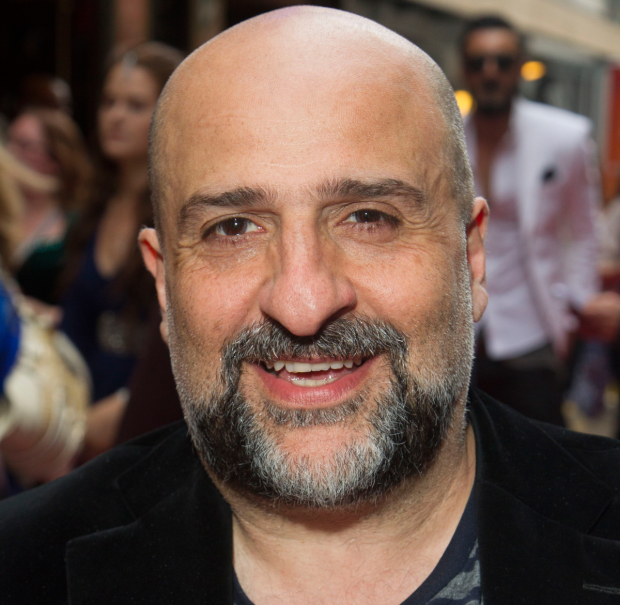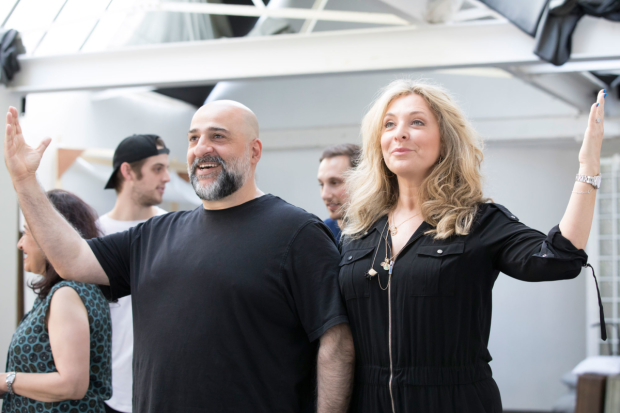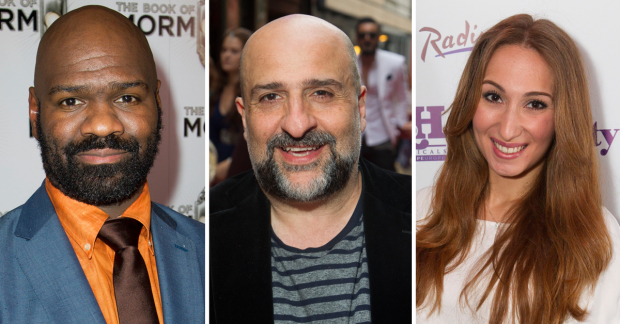Omid Djalili: 'People asked for their money back after my first stand-up show'

© Dan Wooller for WhatsOnStage
Like me, our director Daniel Evans is genuinely bald, so I liked him immediately. He’s not cultivating a look. If he grew his hair out he would be bald on top. There’s some people who shave their heads for a specific look and those of us in the bald community don’t really accept them as bald. So I trust him. We are very much on the same wavelength.
I’m beginning to realise that everyone in musical theatre is ten minutes early. I’ve never been with a more focused group of people in my entire life. It’s been very inspiring to watch, this total focus from director, choreographer, musical team, even sound effects team, to the cast. It’s extremely disciplined and I appreciate that. Especially when we don’t have to work for a living. There are people in offices and we are just singing and dancing. But at least we are being very professional about it.
Despite being set in 1881 in a small shtetl in Ukraine, Fiddler couldn’t be more relevant to today. The musical is primarily about immigration and groups of oppressed people, it’s about having to leave your homeland. It is also about the concept of religion and tradition as well: what are the traditions, are they empty rituals or are they things we should be going back to? ISIS have taken the fire and brimstone really seriously and have completely misunderstood their faith in so many ways. I respond to Fiddler as a child of refugees and as a Bahá'í, which is a persecuted minority as the Jews are.

© Johan Persson
Tevye is a perfect role for a stand-up comedian. He talks directly to the audience as a comedian would. Many of the British audience will have little clue of what Judaism is or of what a shtetl in the Ukraine is. So he brings you into the world of their village. He’s a very important go between for the audience as he explains who they are and why they are there.
A goldfish on a string, a tight pin spot, someone at the back playing one note on a cello: this was one of the experimental theatre pieces we did when I was starting out. The lights went up, I had a Magnum 44, there was a click and the goldfish exploded and I shouted at the top of my voice "Lenin". I started my career in experimental theatre. After university, I did fringe theatre for two years and then went off to perform in Czechoslovakia. We did a lot of plays that had been banned under Communist eastern block rules – we did the first ever production of Ionesco’s The Chairs, we did the first Steven Berkoff. It was a very exciting four and a half years of my life.
In my first Edinburgh stand up show people demanded their money back. I first decided to do stand up after performing at the fringe with our experimental theatre company. I remember thinking I would just try comedy. I did it as a theatre person and I was terrible. I was absolutely appalling. My show lasted 20 minutes when it should have lasted an hour – I had never timed it before – so people asked for their money back. It took a while to adjust to what stand-up comedy actually was.
Fiddler on the Roof runs at Chichester Festival Theatre from 18 July to 2 September, with previews from 10 July.











